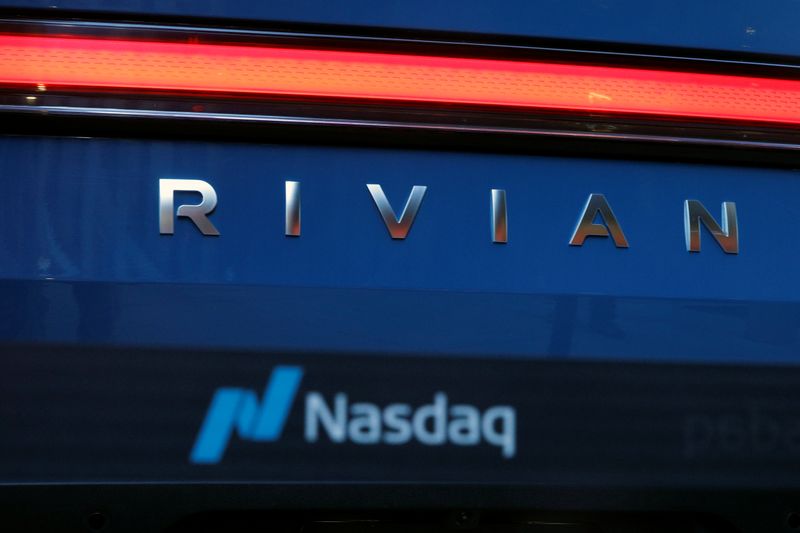On Tuesday, Truist Securities maintained its Hold rating and $10.00 price target for Rivian (NASDAQ:RIVN) Automotive Inc (NASDAQ:RIVN), following news of a significant joint venture with Volkswagen (ETR:VOWG_p). Rivian and Volkswagen announced their collaboration aimed at developing next-generation software-defined vehicle (SDV) architectures. As part of the joint venture, Volkswagen has committed to invest up to $5 billion, including a $1 billion convertible note set to convert into Rivian shares by the end of 2024. Additional investments include $1 billion in Rivian shares for both 2025 and 2026, and a $2 billion investment divided between an upfront payment for the joint venture, a license in Rivian's technology, and a loan in 2026.
The partnership is seen as a strategic move for Rivian, potentially easing concerns about its ability to secure additional capital in a challenging market environment. It also lends credibility to Rivian's integrated software and electrical architecture platform, as it gains recognition from an established automotive player like Volkswagen. After the announcement of the joint venture, Rivian's stock experienced a significant surge, jumping approximately 36% in after-hours trading.
The collaboration with Volkswagen marks a pivotal point for Rivian, as it not only brings in substantial financial backing but also strengthens its position in the industry through the endorsement of its technology and potential for future vehicle development. The market's reaction to the news reflects optimism about Rivian's prospects as it forges ahead with its plans in the competitive electric vehicle sector.
In other recent news, Rivian Automotive and Volkswagen Group have announced a joint venture to develop software-defined vehicle platforms for future electric vehicles. This collaboration, backed by an initial investment of $1 billion from Volkswagen with the potential for an additional $4 billion, aims to leverage Rivian's software and electrical architecture expertise. The deal is anticipated to enhance innovation and reduce costs per vehicle, with Rivian's technology platform serving as the foundation for joint development.
Guggenheim has also initiated coverage on Rivian with a Buy rating, highlighting the electric vehicle manufacturer's potential to appeal to a younger, tech-savvy consumer base. The firm's analysis suggests that Rivian is on a path to achieving breakeven and that its R2 and R3 vehicle platforms hold significant economic promise.
Rivian has been making significant strides towards profitability through various cost-cutting measures, including eliminating over 100 steps in its battery-making process, removing 52 pieces of equipment from its body shop, and reducing the number of parts in its SUVs and pickups by over 500. These changes have led to a 35% reduction in material costs for the company's vans and similar savings across other vehicle lines.
InvestingPro Insights
Amidst Rivian's strategic alliance with Volkswagen, investors are keenly observing the company's financial health and market performance. According to InvestingPro data, Rivian holds a significant advantage by having more cash than debt on its balance sheet, which may provide some stability in a volatile market. However, it's important to note that Rivian is quickly burning through cash and has been marked by weak gross profit margins, which could be a concern for future profitability. The company's stock price has been quite volatile, and analysts do not anticipate Rivian will be profitable this year. This aligns with the broader challenges the electric vehicle industry faces, such as capital intensity and competitive pressures.
For those considering an investment in Rivian, or seeking a deeper understanding of its market dynamics, there are additional InvestingPro Tips available that provide comprehensive analysis and forecasting. For instance, while Rivian's liquid assets exceed short-term obligations, suggesting a degree of financial resilience, the company has not been profitable over the last twelve months. Moreover, Rivian's valuation implies a poor free cash flow yield, which is an important metric for investors to consider. With the stock having taken a significant hit over the last six months, potential investors should weigh these factors carefully. It's worth noting that Rivian does not pay a dividend to shareholders, which may influence investment decisions for those seeking regular income.
For those interested in exploring these insights further, there are nine additional InvestingPro Tips available, which can be accessed with an exclusive offer. Use the coupon code PRONEWS24 to get an additional 10% off a yearly or biyearly Pro and Pro+ subscription, which includes detailed metrics and expert analysis to guide your investment strategy.
This article was generated with the support of AI and reviewed by an editor. For more information see our T&C.
